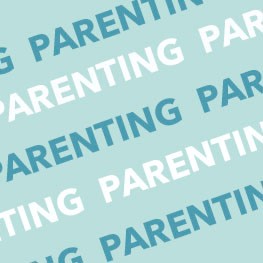
I have just discovered the existence of a fabulous day, worthy of celebration. It occurs right before Mother’s Day, and may be even better! It’s called Clean Up Your Room Day and it occurs every year on May 10. Picture your child’s bedroom as neat as a pin without nagging or threats...skeptical? Me too!
I love the idea of Clean Up Your Room Day, but in reality, your child is not likely to embrace the idea of tidying up, even with a day dedicated to it. There are two main reasons that the majority of children do not voluntarily clean up after themselves:
In either case, it is important to recognize that being neat doesn’t come naturally to most children. Like any other skill, cleaning up needs to be taught. Then, like other skills, it needs to be practiced until success is achieved. And even then, a period without practice could result in regression.
It’s similar to teaching a child to read or to throw a ball. A lack of consistency in teaching is likely to result in it taking longer to learn the skill, and too little practice will mean a greater chance of ‘losing’ the skill, even once it has been taught. Parents become frustrated and angry when nagging and threats do not result in a child becoming self-motivated to clean up. In truth, most children won’t develop this level of motivation until they are adults. Some may never learn it if their brains are not wired to see a mess, and know how to clean it up effectively (this isn’t just an excuse!)
Therefore, rather than yelling and nagging, the best way to teach a child how to clean up is by offering positive reinforcement for a job, even partially well done. Many children also need help beginning or completing a clean-up job.
Assisting your child shouldn’t make you feel that she isn’t really doing the clean-up. You are teaching a skill-your end goal isn’t just a clean room, it is a child who is getting better at learning how to clean a messy room.
Even though, right now, it may seem hopeless, it is important to persevere at teaching your child the art of cleaning up. Think of it as a (very) long-term project, rather than as a homework assignment. You will probably work on this project until your child has moved into his own home. Only then will you start to see evidence that your years of coaching are beginning to pay off. If you are really lucky, you may even see a glimmer of hope before that. I have noticed that when my college sophomore comes home for breaks, he has stopped asking me to do his laundry-he does it himself. Although this isn’t exactly ‘cleaning up’, I consider it a small victory, and remain hopeful that the rest will follow soon!
Dr. Susan Bartell is a nationally recognized psychologist and author, in New York. You can learn more about her at drsusanbartell.comCalgary’s Child Magazine © 2024 Calgary’s Child